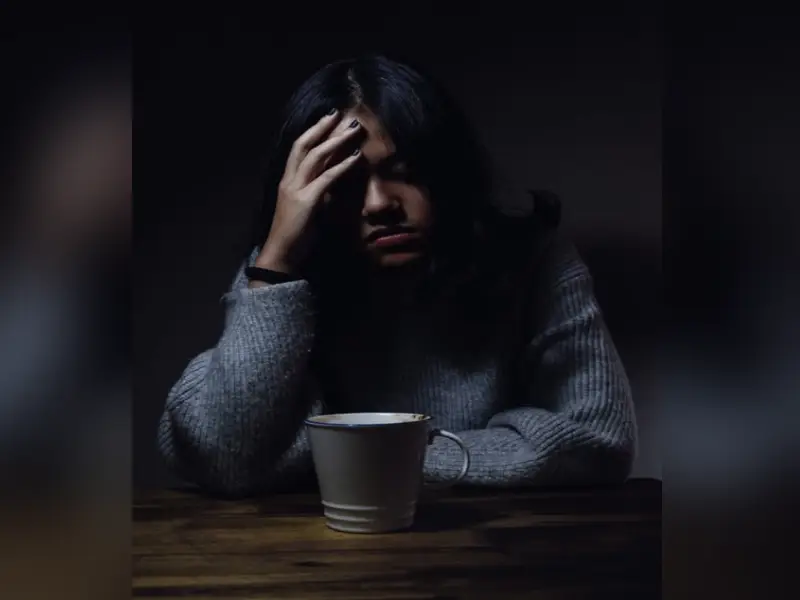COVID-19 pandemic a wake-up call to review National Mental Health Policy
By Newsmeter Network
(Written by Prof. K.Stevenson, HoD, Department of Journalism and Mass Communication, Osmania University)
The resilience and the mental health of people under the nationwide lockdown due to COVID 19 have come under severe stress. The problem of psychological stress among people is likely to be accentuated calling for the intervention of mental health specialists who are in short supply in the country.
Matters got compounded due to the joint family system being replaced by nuclear families. A joint family, bonded generations and members supported each other during times of crisis. Today, nuclear families already groaning under modern-day urban pressures have to seek support from mental health specialists. Community care is one solution but experts view that it cannot replace specialized hospital care.
In these circumstances, the COVID 19 pandemic is a wakeup call for strengthening not only mental health manpower resources but also reviewing the implementation of the National Mental Health Policy.
A quick look at the gap in demand and supply presents a grim picture.
The Union Ministry of Health and Family Welfare report indicates that the country needs around 13,000 psychiatrists. To achieve an ideal ratio of psychiatrists to the population is about 1: 8000 to 10,000 but currently has just about 3,500 - which is about one psychiatrist for over 2 lakh people! Concerning other mental health professionals, the ratio is even worse - the need for Clinical Psychologists is 20,000 and there are only 1000 available; for Psychiatric Social Workers, the requirement is 35,000, but only 900 are available, for Psychiatric Nurses, we need 30,000 and only 1500 are available.
A survey conducted in 12 states by NIMHANS, Bengaluru in 2016, reveals that the availability of psychiatrists (per lakh population ) varied from 0.05 in Madhya Pradesh to 1.2 in Kerala.
Except for Kerala, all other states fell short of the requirement of at least 1 psychiatrist per lakh population. Kerala also had the highest number of clinical psychologists (0.6 per lakh population). The availability of psychiatric social workers was relatively low across all the NMHS states. The limited availability of specialist mental health human resources (psychiatrists, clinical psychologists and psychiatric social workers (existing ones are also mostly in urban areas)) has been one of the barriers in providing essential mental health care to all.
The Assessment was conducted alongside estimating the prevalence of mental disorders and systems available to address the same at the state level, in the same period. The States chosen were diverse about their administrative and economic characteristics like the number of districts, talukas, and villages, per capita income and mental health issues.
It was revealed that in a majority of the surveyed States, mental health programmes and activities were fragmented, disorganized, and had a low priority during implementation limited reach, slow progress, partial focus and peripheral importance given to mental health. Only states like Gujarat, Kerala, and Tamilnadu had made progress in several areas. Apart from a lack of public health approach, the programme suffered from administrative, technical and resource constraints.
Experts at a Symposium on “Law and Public Health” organized by NALSAR in 2019 point out that the National Mental Health Policy which sought to integrate mental health with the public health through the Primary health Centres has been elusive leaving gaping holes in the implementation. The focus of successive governments during the past several decades was on communicable diseases and mental health has been neglected even in terms of budgetary allocation. There is a treatment gap for all types of mental disorders and was “reported to be as high as 83 percent.” The number of hospitals remains 47 with 50,000 beds in both private and public sectors. Globally the bed- population ratio stands at 6.5 per one lakh population whereas it is 2.5 in India.
Even as World Health Day- April 7 fast approaches, the Government has to resolve and prioritize mental health and put in place coordinated implementation mechanisms. It will have to address the issue of minimum human resource and infrastructural requirements for mental health care and adopt a systematic approach that identifies and integrates several components. Mere policy pronouncements without backing it up with implementation would do more harm than good.
Against this backdrop, cut to the present scenario where people are gripped with a fear psychosis and are scared at the very mention of the word coronavirus and need some support from mental health professionals. There are no Indian state which has not reported COVID 19 cases and the figure stands at 1637 at the time of writing this piece.
To cope with stressful times, a random online search suggests the following to mitigate the effects of being isolated: staying connected with your social and family networks via technology; keeping your daily routines as much as possible; exercising regularly and practicing habits that you enjoy and find relaxing; seeking practical, credible information at specific times of the day and skipping the continuous media coverage and WhatsApp messages; leaning on technology – from hotlines to apps to telemedicine; shunning narratives on the number of deaths but look for positives- toward the number of recoveries.